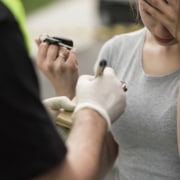How Does Social Media And Digital Evidence Impact Criminal Defense Strategies?
Digital evidence, including social media posts, are now getting integrated into the criminal justice system. This is part of a large-scale transformation, especially where criminal defense strategies are concerned. These have given rise to new avenues for investigation and gathering evidence. However, there are also fresh challenges related to evidence handling and privacy rights.
Use of Digital Evidence in Alabama Courtrooms
Digital evidence is admissible in Alabama courtrooms. It can also have a substantial impact on the results of the trial. Digital evidence can contradict or corroborate witness statements, offer jurors tangible context related to the case, and provide concrete points toward understanding the case. Pertaining to this, using digital evidence is not without its inherent complexities.
There are strict protocols surrounding the use of social media evidence. This includes its preservation and collection. The prosecution and the defense are both required to demonstrate that any digital evidence submitted is not tampered with. You will also need to prove the digital evidence is reliable and relevant.
It’s necessary for digital evidence to be presented in such a way that it remains comprehensible and understandable to the judge and jury. They may not always be able to relate to technology. Expert witnesses can be helpful in explaining the authenticity, origins, and implications of digital evidence.
Digital and social media evidence is a powerful tool where legal processes are concerned. They provide key information, which may not always be attainable through traditional evidence-gathering methods. Effectively understanding and using social medial evidence has become vital in criminal law with the increasing online presence of the world.
Implications of Social Media on a Criminal Defense Case
Posts, videos, photos, private messages, and other social media content can be used as evidence in court as long as it is relatable and relevant to the case. In fact, courts across the state have come to recognize the potential value of establishing timelines and connections between individuals and determining facts. These are a few ways social media content can be used as evidence:
- Establishing timelines: Social media posts can be useful for defense attorneys and prosecutors to establish a timeline of events around a crime. For instance, any posts made before, during, or after the criminal incident can provide clues about the alleged whereabouts, state of mind, and activities of a suspect.
- Proving intent or motive: Social media content can be used for establishing a person’s intent or motive for committing a crime. For instance, any posts that express jealousy, anger, or a desire to seek revenge can be used by the prosecution for demonstrating a motive. In contrast, the defense can also use social media content for presenting an alternative explanation or showing a lack of motive for the accused’s actions.
- Establishing connections: Social media can be used for demonstrating connections between different parties to a crime. This includes witnesses and co-conspirators. Shared posts, friends lists, and tagged photos can be used as evidence for showing a relationship between the suspect and other individuals.
- Challenging credibility: Digital posts can be used for challenging witness credibility. For instance, a witness’s testimony may be completely discredited if they claim to be at a certain place at the time of the crime, but are proven to be elsewhere through their social media posts.
- Demonstrating character: Social media content can be used for demonstrating a person’s character or for providing context for their actions. For instance, there may be a pattern of violent posts of a threatening nature. The prosecution may argue that the accused had a predisposed mindset toward criminal activity. The defense may use other posts to show that the accused is a law-abiding and responsible citizen for countering such claims.
All types of social media and digital evidence can be admitted as evidence. This makes it important to work with a skilled and knowledgeable criminal defense attorney that has the experience to design solid defense strategies. For digital evidence to be relevant, it should be authentic and relevant to the case. It should not be fabricated or tampered with. The probative value of digital evidence should outweigh any prejudicial effect.
Cooperation Between Social Media Platforms and Law Enforcement
All social media platforms have strict policies to handle requests made by law enforcement. Typically, these policies require requests to be accompanied by legal documentation from relevant authorities. In most cases, social media platforms notify a user of any legal request.
This is unless they are legally prohibited from intimating the user. Social media platforms don’t necessarily have to comply with every request received. They may challenge requests that lack proper legal basis, are overly broad, or violate privacy rights.
Social media as evidence can also have an impact on you drug cases, personal injury cases and divorce cases!
Get a Free Case Evaluation from Our Seasoned Criminal Defense Attorneys
If you or someone you know needs expert legal advice, the experience and knowledgeable criminal defense attorneys at Alsobrook Law Group can help. We understand that you may have concerns about protecting your rights during this challenging time, which is why we will employ all available resources toward creating a solid defense strategy on your behalf. To set up your complimentary consultation, call 334-737-3718 or reach us online.
















